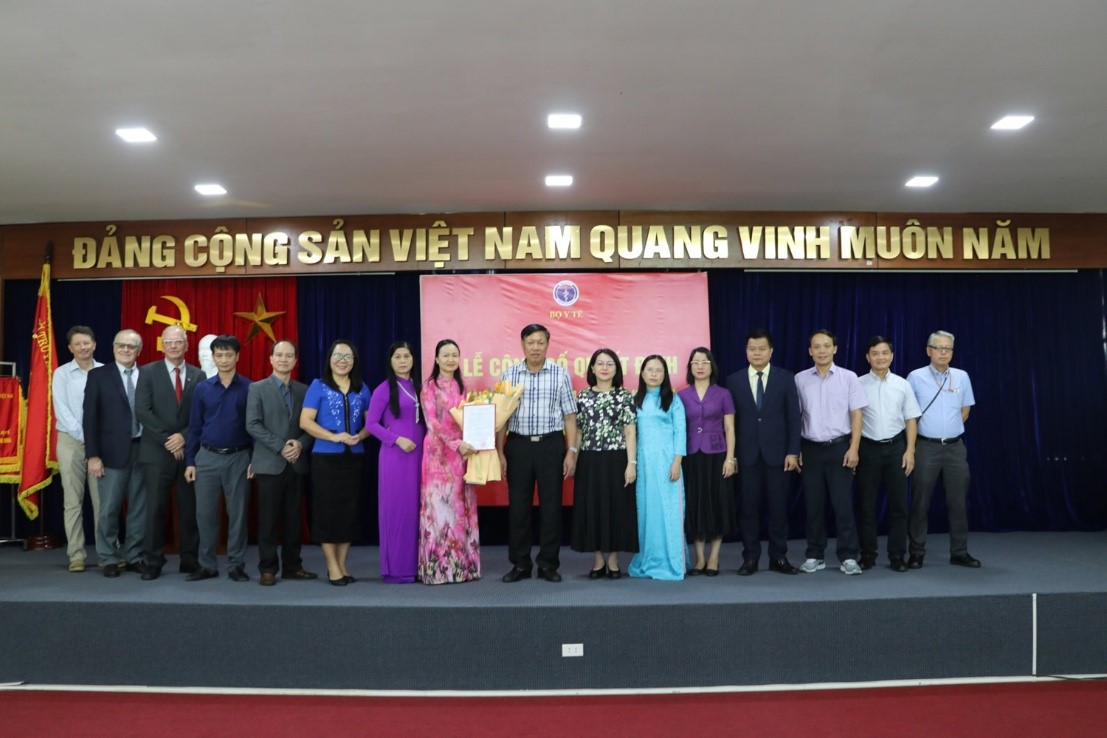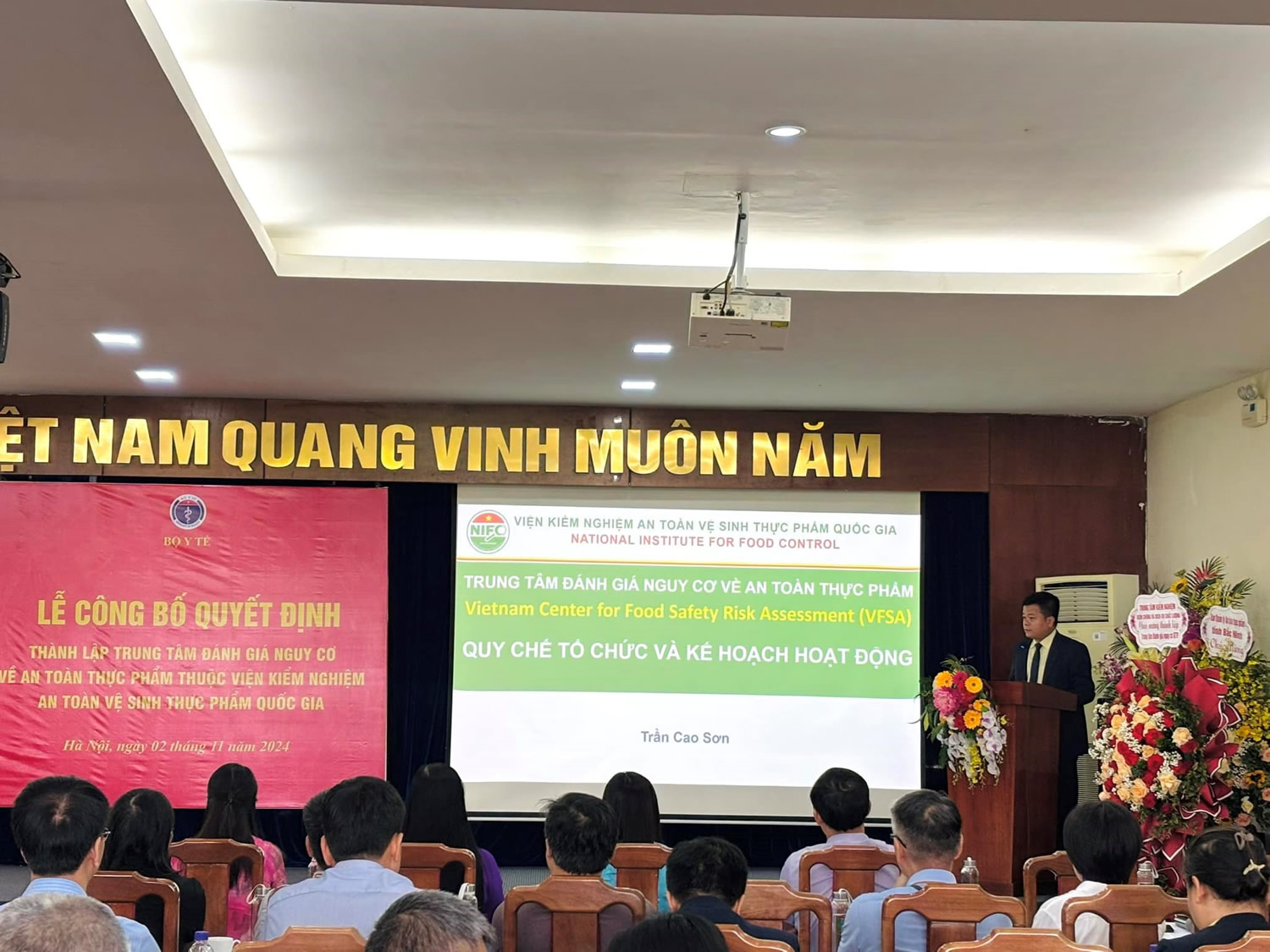Introduction
The Vietnam Center for Food Safety Risk Assessment (VFSA), under the National Institute for Food Control (NIFC), was established pursuant to Decision No. 1936/QD-BYT issued by the Minister of Health. Its purpose is to provide advisory services and enhance food safety management based on risk assessment in Vietnam.

Inauguration Ceremony for the Establishment of VFSA
VFSA is committed to advancing food safety management in Vietnam through science-based risk assessment and evidence-driven policy recommendations. Its mission is to ensure public health protection by identifying, assessing, and mitigating food-related risks. VFSA envisions becoming a leading institution in food safety risk assessment, recognized regionally and globally for its excellence in research, innovation, and its contributions to developing a safer, more resilient food supply chain in Vietnam.

Presentation on the organizational structure and operational plan of VFSA
Functions and responsibilities
Functions
- Identify and assess health risks posed by chemical, biological, and other agents in food and related products.
- Provide advisory support for risk management and risk communication regarding food safety.
- Participate in the development of standards and technical regulations.
- Establish a network for collecting and synthesizing information and data.
- Conducting training and fostering domestic and international collaboration on food safety risk assessment in accordance with legal provisions.
Responsibilities
i. Identify and assess health risks posed by chemical, biological, and other agents in food and related products.
- Participate in the development of national plans for risk assessment and risk monitoring in food safety.
- Propose and contribute to the formulation of programs/activities for risk assessment and risk monitoring in food safety within NIFC.
- Develop procedures and technical guidelines for food safety risk assessment.
- Implement programs/activities for risk assessment and monitoring of food safety hazards, including the assessment and surveillance of biological hazards, chemical hazards, food additives, and other risks in food products.
- Identify biological, chemical, and other hazards with potential impacts on human health throughout the food chain, from farm to table.
- Assess the toxicity of hazards to human health, including characterization of major toxic substances, toxic doses, acceptable daily intake levels, mechanisms of toxicity, and metabolism of toxic substances in the body.
- Conduct exposure assessments of health hazards based on food consumption surveys and related product investigations, sampling, and testing.
- Synthesize information from exposure assessments and toxicity evaluations to classify hazards by risk level and assess adverse health effects.
- Promptly report the results of food safety risk assessments and other relevant information to higher-level regulatory authorities.
ii. Participate in the development of standards and technical regulations.
- Participate in the development of standards and technical regulations for food products based on the results of food safety risk assessment activities.
- Collaborate with domestic and international organizations in the formulation of baseline standards for food products and other related products.
iii. Establish a network for collecting and synthesizing information and data
- Develop a website for the collection and synthesis of information and data on microbiological and chemical hazards in the food chain.
- Gather and process information and data on food consumption at both national and local levels to support food safety risk assessment activities.
iv. Conducting training and fostering domestic and international collaboration on food safety risk assessment in accordance with legal provisions
- Act as the Institute's focal point for collaboration with domestic and international organizations on food safety risk assessment.
- Participate in domestic and international training programs on risk analysis, with a particular focus on food safety risk assessment.
v. Provide advisory support for food safety management
- Advise the Institute's leadership on coordinating research, testing, and training activities related to food safety risk assessment among testing laboratories, institutes, and universities.
- Advise the Institute's leadership on fostering collaboration among food safety regulatory agencies in the development of policies, risk management solutions, and risk communication strategies for food safety.




.png)